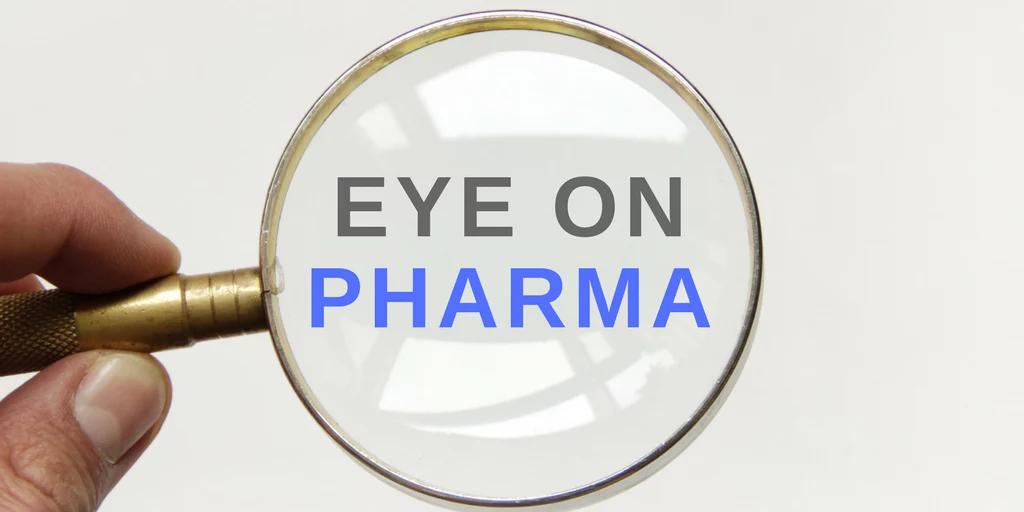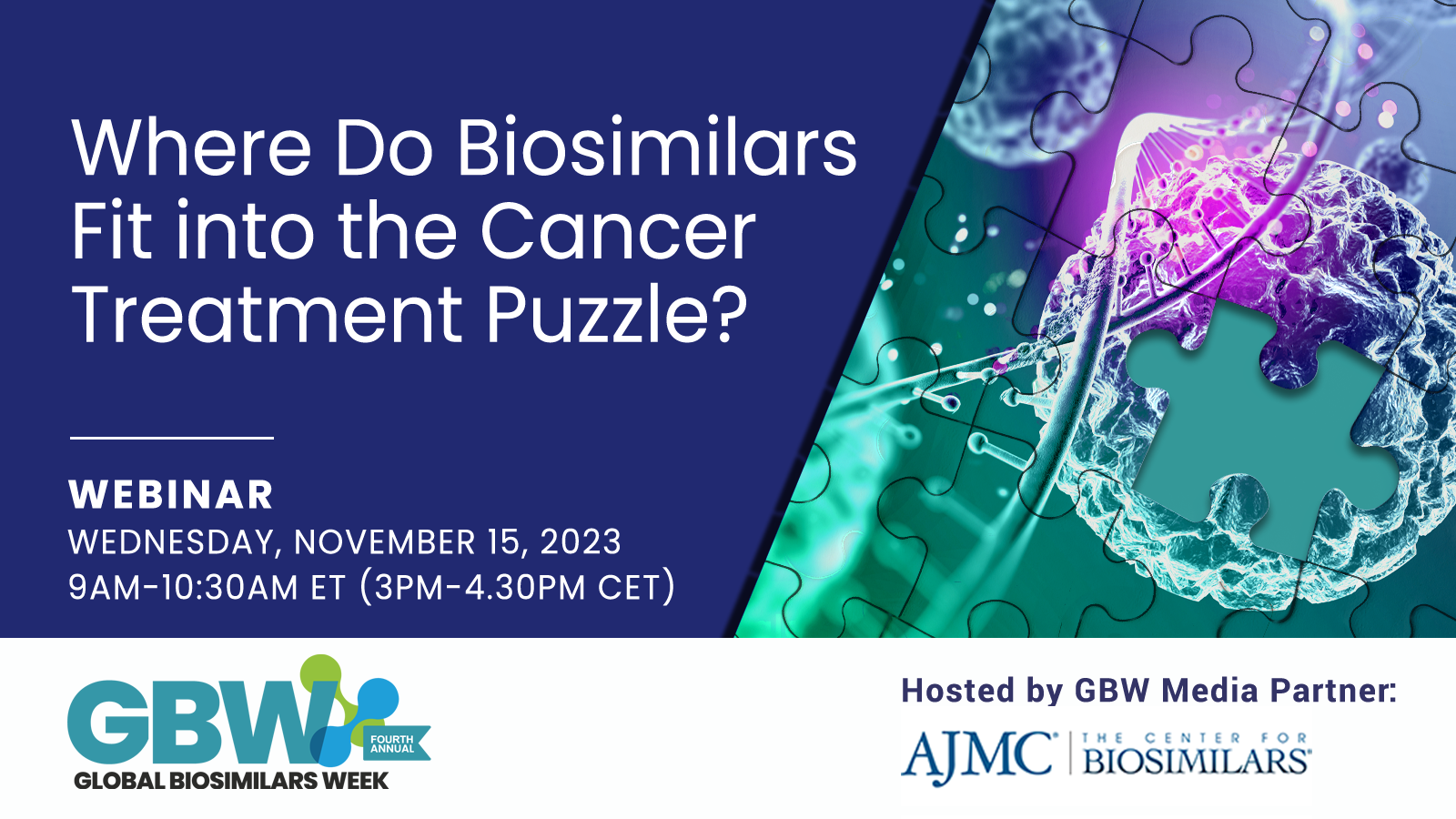- Bone Health
- Immunology
- Hematology
- Respiratory
- Dermatology
- Diabetes
- Gastroenterology
- Neurology
- Oncology
- Ophthalmology
- Rare Disease
- Rheumatology
Eye on Pharma: Denosumab Biosimilar Data; COA Forms New Committee; IGBA and WHO Collaborate
Samsung Bioepis releases data for its denosumab biosimilar candidate; the Community Oncology Alliance (COA) forms the Drug Policy and Regulation Committee; the International Generic and Biosimilar Association (IGBA) and the World Health Organization (WHO) collaborate on a new initiative.

Samsung Bioepis releases data for its denosumab biosimilar candidate; the Community Oncology Alliance (COA) forms the Drug Policy and Regulation Committee; the International Generic and Biosimilar Association (IGBA) and the World Health Organization (WHO) collaborate on a new initiative.
Samsung Bioepis Data
Samsung Bioepis introduced clinical data from a phase 1 study and a phase 3 study assessing SB16, a proposed biosimilar to Prolia (denosumab), at the ASBMR 2023 Annual Meeting in Vancouver, Canada.
The phase 1 study demonstrated pharmacokinetic (PK) equivalence between SB16 and denosumab from the European Union and the United States. The trial included 168 healthy male participants aged 28 to 55 yers who received a single 60-mg subcutaneous dose of SB16, EU-sourced Prolia, or US-sourced Prolia. Over 197 days, researchers assessed pharmacokinetics, pharmacodynamics, safety, tolerability, and immunogenicity. Equivalence was determined if key PK measurements fell within the 0.80 to 1.25 range of the 90% CIs.
The phase 3 study showed comparable efficacy, safety, and other parameters in patients with postmenopausal osteoporosis (PMO). Samsung Bioepis emphasized its commitment to biosimilar development and health care professional education. Overall, 457 patients with PMO were randomly assigned in a 1:1 ratio to receive either 60 mg of SB16 or Prolia subcutaneously every 6 months. At month 12, patients in the Prolia group patients were rerandomized 1:1 to switch to SB16 or continue with the originator.
COA Forms Drug Policy and Regulation Committee
COA’s Board of Directors announced the creation of the Drug Policy and Regulation Committee, which will seek to provide solutions that will ensure patients and practices have stable and affordable access to current and future drug products, including innovators, generics, and biosimilars. The solutions will address rising drug costs, supply chain issues, outdated payment and reimbursement structures, and drug shortages. Additionally, the committee will work with manufacturers and wholesalers, group purchasing organziations, federal and state policymakers and regulatory agencies, payers, providers, researchers, and advocacy groups to achieve its objectives.
The committee consists of 7 COA members and 1 COA team member, including Kathy Oubre, MS, CEO of Pontchartrain Cancer Center and a member of The Center for Biosimilars®’ Advsory Board. Oubre will serve as committee co-chair.
“We want to encourage stakeholders at every level to fix this broken system,” said Oubre. “Whether that is championing the use of biosimilars to decrease costs and increase competition, creating redundancies for manufacturers in case of a crisis, or fixing the system of middlemen between manufacturers and practices, this committee will encourage decision makers to work toward a future where critical drugs are easily accessible by practices and patients.”
IGBA and WHO Join Forces
The IGBA and the WHO have announced a collaboration to implement steps both organizations can take to expand global access to generic and biosimilar medicines. Organization leaders—including WHO director-general Tedros Adhanom Ghebreyesus, PhD; IGBA’s CEO Advisory Committee members; and WHO technical experts—met in Geneva, Switzerland, to discuss prospective actions.
“The meeting was a continuation of the collaborative efforts the WHO and IGBA have taken to expand sustained access to quality-assured generic and biosimilar medicines,” commented Suzette Kox, secretary general of IGBA.
During the meeting, the organizations agreed to foster efforts to:
- Enhance the visibility of low- and middle-income country markets to tailor solutions to their specific requirements, not just high-income countries
- Utilize automation to anticipate market issues, like shortages or supply disruptions
- Broaden global tools and policies, like biosimilar medicine regulation, to accommodate emerging regulatory capacities in countries
The news comes as IGBA prepares for its annual Global Biosimilars Week awareness campaign. The event takes place from November 13-17, and will feature a live webinar on November 15 at 9:00 am EST. The webinar is in collaboration with The Center for Biosimilars®.
To learn more about this webinar and register, click here.
Newsletter
Where clinical, regulatory, and economic perspectives converge—sign up for Center for Biosimilars® emails to get expert insights on emerging treatment paradigms, biosimilar policy, and real-world outcomes that shape patient care.

